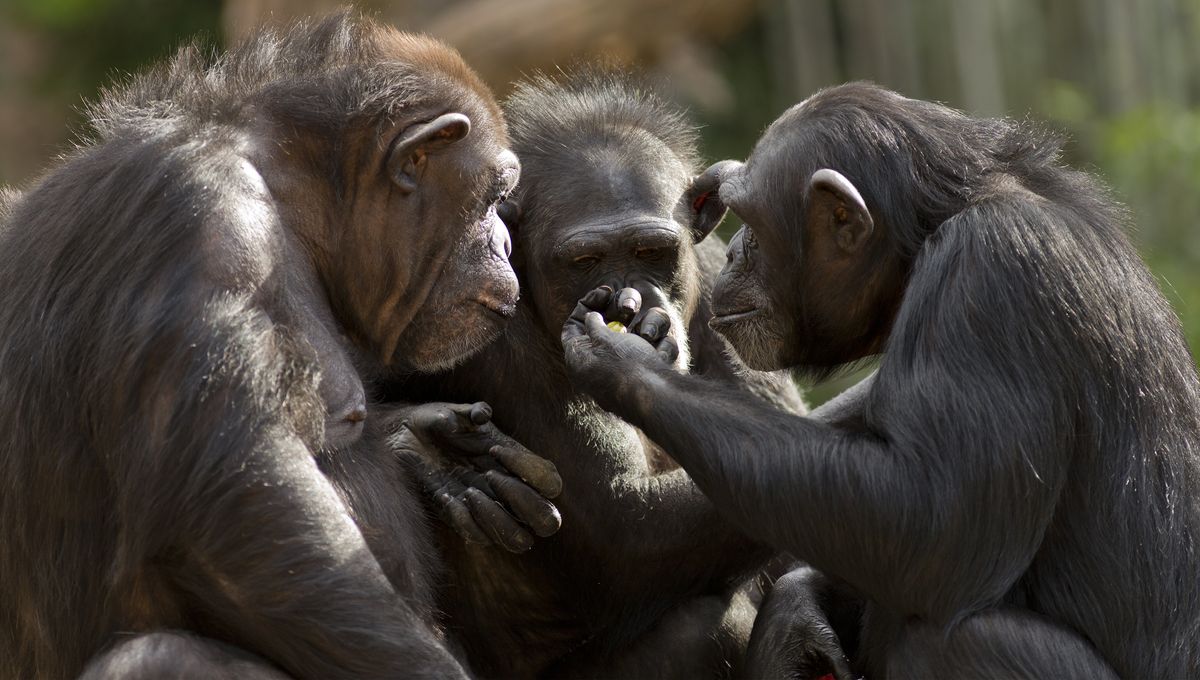
Between 1974 and 1978, a long and grisly conflict between two factions of chimps was documented in Tanzania’s Gombe National Park by the renowned primatologist Jane Goodall. It came to be known as the Gombe Chimpanzee War or the Four-Year War. Some researchers have been uneasy with the label of “war” – we’ll go into that a bit later – but for Goodall, the conflict significantly differed from the violence commonly seen among chimpanzees.
Amid the intense violence, the conflict had structure and character that was uncannily similar to the wars of Homo sapiens. Rather than impulsive scraps akin to a drunken brawl in a bar, the conflict was defined by political jostling for power and competition for resources, reminiscent of organized human warfare.
Throughout the 1960s, the Kasakela community appeared relatively unified, with most of the males intermingling with little conflict. Fractures started to show in 1971 when the community was loosely divided into two factions: the northern Kasakela group and the southern Kahama group. The two factions started to spend less time socializing with each other and they became increasingly distinct, split into two separate territories.
Things took a decisive turn for the worse with the death of a senior male. A chimp called Humphrey became the “alpha male” of Kasakela, but he faced competition with two brothers from the southern Kahama group, Hugh and Charlie. The other chimpanzees started aligning themselves with either Humphrey or the brothers, setting the stage for the conflict.
The first blood was shed on January 7, 1974, when six Kasekela males ambushed a southern Kahama male as he was eating alone. The next four years were marked by a string of brutal and coordinated attacks by the Kasakela group, resulting in the systematic killing of all male members and some females of the Kahama group. The Kahama were effectively wiped out, allowing the Kasakela to expand into their territory and gain control of the remaining individuals.
The tone of violence was an especially shocking aspect of the “war”. Granted, aggression is hardly unknown to great apes. Studies have suggested that chimpanzees are innately violent and their skills in lethal force are a factor in their evolutionary success.
This conflict, however, took things to another level.
“It was like a civil war, really. They treated them in ways that we’ve never seen them treat an individual of their own community,” Goodall said in a 2015 interview with BBC Radio 4.
“It was horrible. Cupping their victim’s head as he lay bleeding with blood pouring from his nose and drinking the blood. Twisting a limb to try and twist it off. Tearing pieces of skin with their teeth. You never seen that in a fight within a community,” she added
“And yet these were individuals they traveled with, fed with, played with, grown up with. It’s what we do: we dehumanize the enemy. That’s what happens in genocide,” she noted.
The nature of the conflicts among chimpanzees raises questions about whether warfare has a “deep evolutionary history” or if it’s an unpleasant by-product of complex societies. It’s sometimes suggested that war, at least as we know it today, emerged out of sedentary civilizations and agriculture, which allowed the firm establishment of territory, a strong centralized leadership, chains of command, and advanced material technology.
When we look at chimps, we see that many of the darkest facets of human warfare are not unique to our species.
Since the Gombe Chimpanzee War in the 1970s, similar conflicts have been noted. The wildly popular Netflix documentary Chimp Empire shows the complex conflicts that erupted among chimpanzees in Uganda’s Ngogo rainforest, the largest group of chimpanzees ever known.
Some primatologists have applauded the film, although it’s been argued some artistic license was used to make the show more dramatic. Experts have also warned that we should resist the urge to brand chimps as immoral animals. They suggested that the narrative of the film runs the risk of ignoring that chimpanzees, though capable of violence, are complex animals of immense emotional intelligence, love, and ingenuity.
Then again, the same could be said about us…
Source Link: Gombe Chimpanzee War: A 4-Year Power Struggle In The Forests Of Tanzania